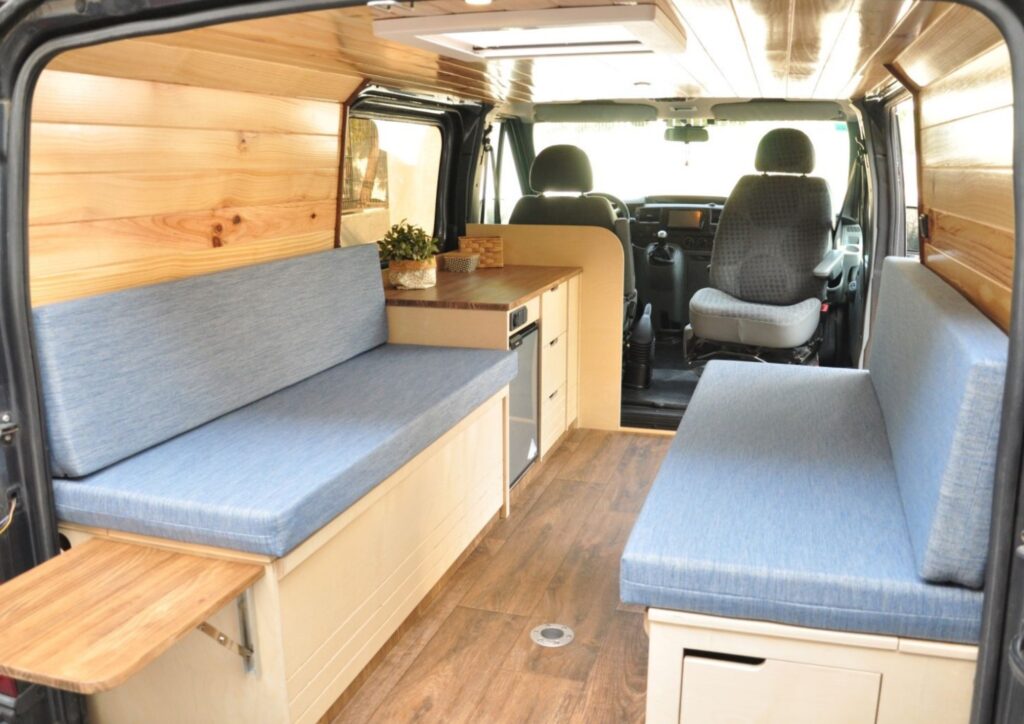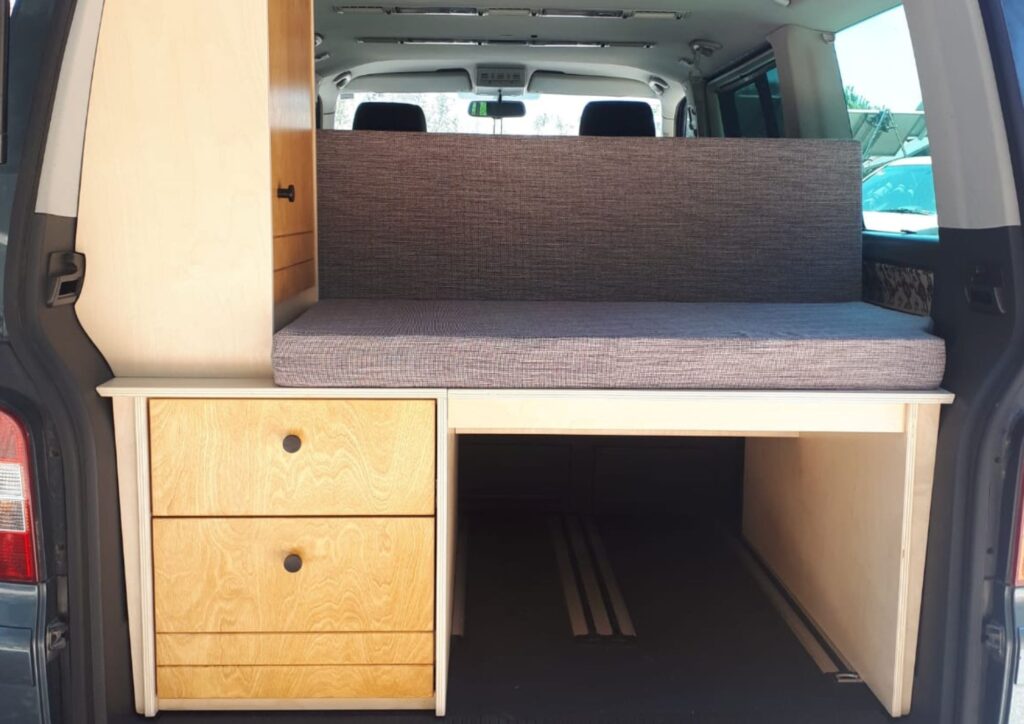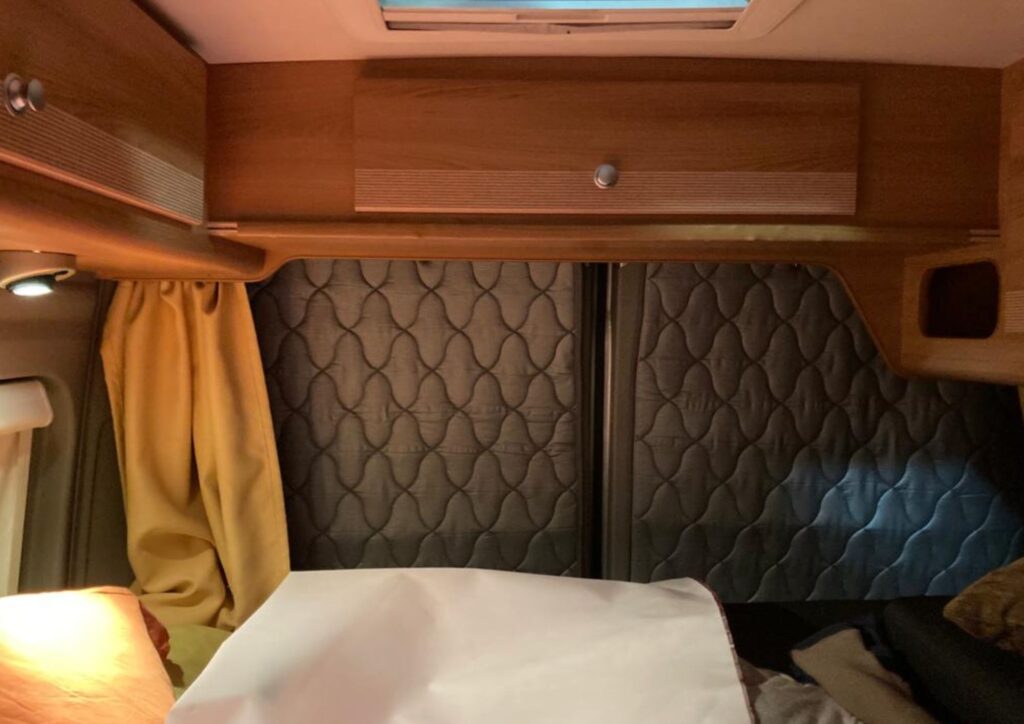Van conversion: freedom without sacrificing comfort
The van conversion It continues to gain popularity in 2025, consolidating its position as an ideal option for those seeking a more free, practical, and sustainable way to travel. It's no longer just for adventurers: today, many families, young professionals, retirees, and alternative tourism enthusiasts are embracing this trend to enjoy getaways or even live on wheels with all the comforts.
In this updated guide, you'll discover what converting a van really entails, what the current regulations in Spain state, how much it can cost, and what elements are essential to get it right from the start. If you're thinking about taking this step, here's all the information you need to get off to a good start.

What is van conversion and why is it booming in 2025?
Converting a van means transforming it to make it habitable and functional. This process can include everything from simple sleeping and cooking equipment to a complete electrical system, thermal insulation, custom furniture, or even a shower and parking heater.
Why do so many people choose this way of life?
- Absolute freedom: Travel without relying on hotels, reservations, or fixed routes.
- Long-term savings: After the initial investment, you significantly reduce travel costs.
- More sustainable lifestyle: Many incorporate solar panels and responsible habits.
- Compatibility with teleworkingA well-equipped van can be your mobile office.
By 2025, camperization is no longer just a fad: it's a real, flexible, and increasingly professional solution.
Regulations for van conversions in Spain: key aspects in 2025
A van conversion A well-made van must be legal and safe. In Spain, modifying a van requires following a series of regulatory steps:
- Approval of reforms: Any structural installation—such as furniture, batteries, skylights, or additional windows—must be legally approved by an engineer.
- Minimum requirements for a motorhome: Bed, storage areas, ventilation and lighting are required.
- Specific ITV after camperization: to legalize the reform and be able to circulate.
- Adapted insurance: Check with your insurer to ensure your policy covers the new vehicle configuration.
Following these steps will not only prevent you from being penalized, but will also ensure your safety and that of your companions.

Costs, essential elements, and how to choose a base for converting your van
Converting a van can cost from a few thousand euros if you do it yourself to over €20,000 if you hire professionals and fully equip it. The final budget depends on your needs and the type of vehicle you have.
Essential elements for a functional camperization:
- Thermal insulators (like those offered by M2 Camper): key to maintaining a comfortable temperature inside. Although they are designed for specific occasions—not to be permanently installed year-round—they are effective both in summer and winter. It is important to take good care of them to prevent deterioration due to prolonged exposure to the sun. For continuous use, other external solutions are available, such as specific covers.
- Custom-made mattresses (M2 Camper also offers high-quality, customized solutions): optimal rest is essential for any getaway. A well-designed mattress can make the difference between a restful night or an uncomfortable trip.
- Windows or skylights: essential to ensure ventilation and natural light.
- Electrical system and auxiliary battery: to charge devices, illuminate the interior and power household appliances without relying on external sources.
- Functional and durable furniture: Make the most of your space with practical and lightweight solutions.
- Custom thermal blackout blinds: to improve thermal comfort, privacy, and rest. In the case of thermal blinds, it's also important to use them wisely and protect them from the intense sun when not in use.
Which van is best for camperization?
Your choice of base vehicle will depend on your intended use, budget, and personal preferences. Here are some popular options for 2025:
- Small vans (VW Caddy, Renault Kangoo): ideal for short breaks or single people, but limited in interior space.
- Medium vans (VW Transporter, Ford Transit Custom): A good balance between mobility and comfort. Easy to park and versatile.
- Large vans (Fiat Ducato, Mercedes Sprinter): perfect for living on the road or for families. They include a bathroom, shower, full kitchen, etc.
Consider your lifestyle: Are you traveling alone or with others? Will you be traveling for short breaks or extended stays? Do you prioritize maneuverability or interior comfort?

Practical advice if you are going to start the van conversion
- Invest in good insulation: Although insulators like those in the M2 Camper are not permanent, their effectiveness at key moments greatly improves the vehicle's habitability.
- Plan the actual use you will give to the vehicle: prioritizes practical, not decorative, solutions.
- Less is moreAvoid overloading the van with unnecessary furniture. Space is limited, and functionality must be a priority.
- Design before you install: Use paper or 3D design software to visualize the layout and avoid errors.
- Consult specialized communities and forums: Learning from the experience of others will save you from many beginner mistakes.
- Choose specific, quality products from the start: both in mattresses, thermal insulation and electrical accessories. Companies such as M2 Camper They offer solutions specifically designed for the camper world, which translates into greater durability, better fit, and greater comfort.
The van conversion In 2025, it remains an open door to adventure, savings, and a connection to a freer, more conscious lifestyle. However, doing it right means knowing the regulations, planning wisely, investing in appropriate materials—like those offered by M2 Camper—and, above all, keeping in mind that comfort is not at odds with functionality.
Whether you're planning your first getaway or dreaming of a long-term nomadic life, the key is to do your research, surround yourself with good professionals, and choose every element wisely. Your van can be much more than a vehicle: it can be your home on the move.



